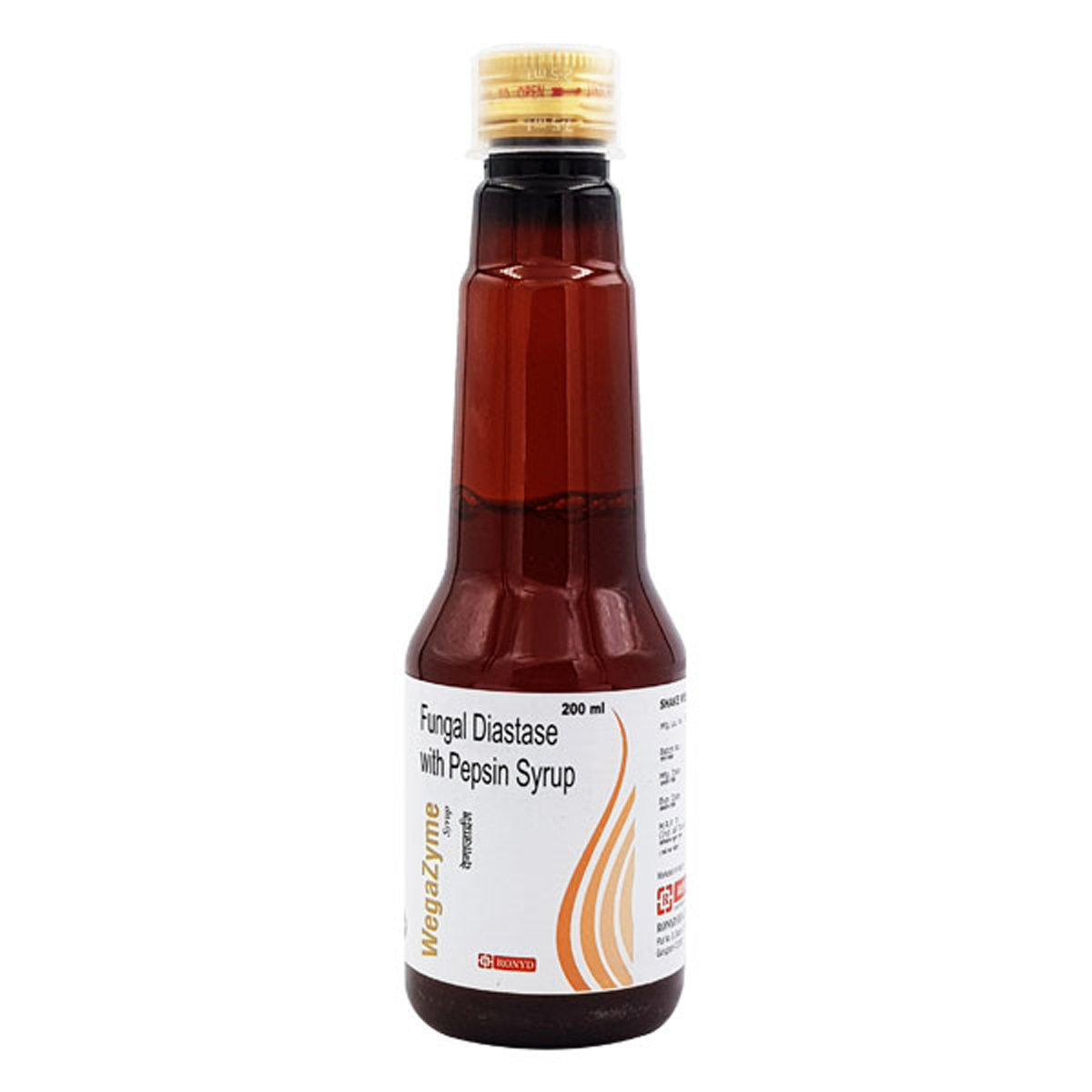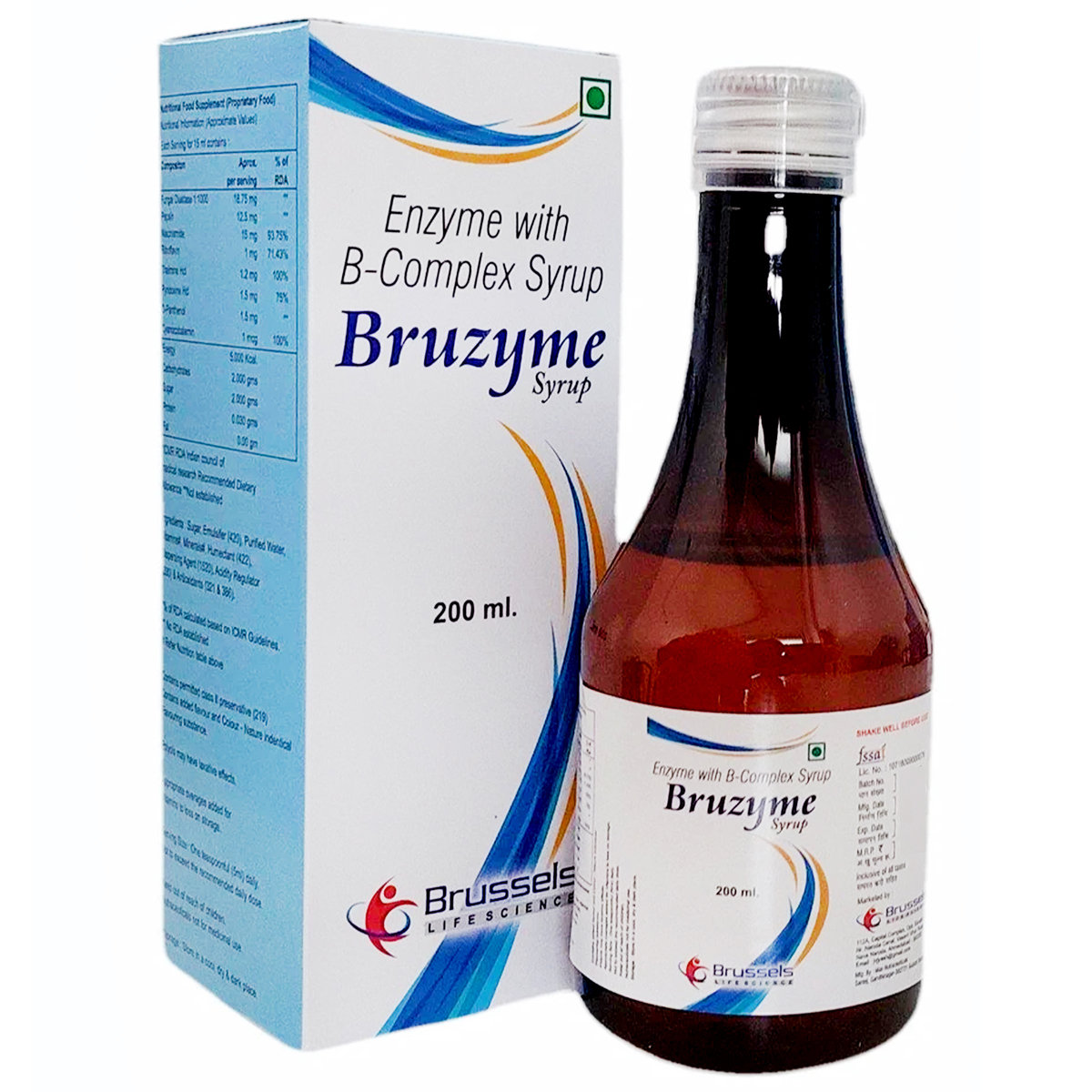Pepsin+diastase
About Pepsin+diastase
Pepsin+diastase is a digestive aid primarily used to treat digestive disorders. It is also an appetite stimulant (increases hunger) that effectively treats acid indigestion (heartburn), flatulence (gas), epigastric distress (upper abdominal pain), and eructation (burping).
Pepsin+diastase can also be used to relieve other digestive disorders like pancreatic insufficiency (inability to produce pancreatic enzymes) and abdominal discomfort.
Pepsin+diastase contains Diastase and Pepsin, which work by breaking down complex carbohydrates and proteins into simple compounds. Thereby, it aids digestive disorders and gastric problems.
Some may experience side effects, including abdominal pain, nausea, vomiting, diarrhoea, and stomach upset. Although not everyone experiences these side effects, please seek medical attention if they persist or worsen.
Let your physician know if you are using any other medicines, herbal or vitamin supplements, before you take Pepsin+diastase. Pregnant and breastfeeding women should use Pepsin+diastase with proper consultation and caution.
Uses of Pepsin+diastase
Medicinal Benefits
- Pepsin+diastase is used to relieve digestive disorders such as indigestion, heartburn, gas, bloating, and abdominal discomfort.
- It contains two key digestive enzymes: Fungal Diastase and Pepsin, which support efficient digestion and nutrient absorption.
- Fungal Diastase is an amylolytic (starch-hydrolysing) enzyme which breaks down complex starch into simple sugars like maltose.
- It aids in the digestion of carbohydrates, fats, and proteins.
- Pepsin is a proteolytic (protein-digesting) enzyme which breaks down large protein molecules into smaller peptides and amino acids.
- It improves overall digestive function, reduces symptoms of indigestion, acidity, and gas.
- Pepsin+diastase promotes better absorption of essential nutrients in the intestine, provides relief from abdominal discomfort and improves gut health.
Directions for Use
- Pepsin+diastase can be taken after meals to help prevent stomach upset, or as directed by your doctor.
- Follow your doctor's instructions on the dosage and timing of this medication.
- Swallow Pepsin+diastase as a whole with a glass of water.
- Do not crush or chew this medication.
Storage
Side Effects of Pepsin+diastase
- Abdominal pain
- Feeling of sickness
- Skin rash
- Stomach upset
- Diarrhoea
- Painful urination
- Heartburn
- Nausea
- Vomiting
Drug Warnings
- If you have a history of swelling/inflammation of the pancreas (acute pancreatitis), let your physician know about it.
- Pregnant and breastfeeding women should use Pepsin+diastase with proper consultation and caution.
- Please inform your doctor if you are taking any other medications, including supplements or herbal products.
Drug Interactions
Drug-Drug Interaction: Pepsin+diastase may interact with anti-diabetic drugs (acarbose and miglitol).
Drug-Food Interaction: Alcohol consumption makes the stomach produce more acid, which can further lead to heartburn.
Drug-Disease Interaction: Pepsin+diastase should be used cautiously if you have any liver or kidney diseases, diabetes, or swelling/inflammation of the pancreas (acute pancreatitis).
Drug-Drug Interactions Checker List:
Safety Advice

Alcohol
cautionIt is recommended to avoid alcohol while you are being treated with Pepsin+diastase. Alcohol consumption makes the stomach to produce more acid, which can further lead to heartburn.

Pregnancy
consult your doctorThere is limited data on how the Pepsin+diastase affects pregnancy. Pepsin+diastase should be used during pregnancy only if the benefit outweighs the risk. Please consult your physician if you are planning to become pregnant or are already pregnant before starting Pepsin+diastase.

Breast Feeding
consult your doctorIt is unclear if Pepsin+diastase is excreted into the breast milk while used by a breastfeeding mother. It is better to consult your physician before taking Pepsin+diastase if you are breastfeeding.

Driving
cautionDo not drive or operate machinery if you experience any discomfort while using Pepsin+diastase until you feel better.

Liver
cautionPlease take Pepsin+diastase with caution and physician advice if you have a history of liver diseases/conditions. Your dose may be adjusted in case of any liver impairment.

Kidney
cautionPlease take Pepsin+diastase with caution and physician advice if you have a history of kidney diseases/conditions. Your dose may be adjusted in case of any renal impairment.

Children
consult your doctorPlease consult a doctor if you have any concerns regarding the use of Pepsin+diastase for children.
Habit Forming
Diet & Lifestyle Advise
- Please take foods rich in probiotics such as yoghurt/curd, kefir, sauerkraut, tempeh, kimchi, miso, kombucha, buttermilk, natto, and cheese.
- Eat fibre-rich food like whole grains, beans, lentils, berries, broccoli, peas, and bananas to aid digestion.
- Avoid intake of alcoholic beverages with Pepsin+diastase as it can make you dehydrated and increase acidity.
- Avoid eating too much, eating too fast, eating high-fat foods, or eating during stressful situations that can burden your stomach.
- Eating small meals at regular intervals so that the stomach does not have to work as hard or as long.
- Smoking can irritate the stomach lining, hence please avoid it.
- Sleep with your head elevated (at least 6 inches) above your feet, and use pillows. This helps digestive juices to flow into the intestines rather than to the oesophagus.
Patients Concern
Disease/Condition Glossary
Dyspepsia (indigestion): Indigestion is the inability to digest food associated with pain and discomfort in the stomach.
Eructation: Also known as belching or burping. It releases gas from the upper digestive tract (oesophagus and stomach) through the mouth.
Pancreatic Insufficiency: It is a digestive disorder characterised by a deficiency of pancreatic enzymes to break down food in the intestine.
FAQs
Pepsin+diastase is used for the treatment of digestive disorders, gastric problems, appetite stimulation, pancreatic insufficiency, and eructation.
Pepsin+diastase contains diastase and Pepsin. Diastase is a starch-hydrolysing or amylolytic enzyme that breaks down the starch into simple sugars (maltose). Pepsin is a proteolytic enzyme (protein-digesting) that breaks down larger protein molecules into smaller peptides (a short chain of amino acids). Collectively, Pepsin+diastase promotes the digestion of carbohydrates and proteins and helps absorb the essential nutrients in the intestine.
Please let your doctor know if you have a history of allergic reactions to medicines, and inflammation of the pancreas (pancreatitis) before starting Pepsin+diastase.
Do not stop using Pepsin+diastase even if you feel better until the doctor's advised course is finished. Your symptoms may improve, but the disease may not be cured completely.
If you miss a dose, take it as soon as you remember. However, if it is time for the next scheduled dose, skip the missed dose and follow your usual dosage.
Yes, digestive disorders and starch-degrading enzymes are among the most common reported uses for Pepsin+diastase. Pepsin+diastase should be used only after a physician's suggestion.
To prevent any interactions, Pepsin+diastase should be taken with other medicine only if advised by the doctor. Inform the doctor if you are taking any other medicines, particularly anti-diabetics.
Pepsin+diastase should be used during pregnancy if advised by the doctor. Please consult your physician if you are pregnant or planning to become pregnant before starting Pepsin+diastase.
Pepsin+diastase contains two digestive enzymes, namely: Diastase and Pepsin. It is used to treat digestive disorders, gastric problems, pancreatic insufficiency, and eructation. Pepsin+diastase may also help stimulate appetite.
No, do not take Pepsin+diastase if you are allergic to any of its components. Please consult the doctor if you are allergic to the contents of Pepsin+diastase; the doctor will recommend alternate medicine.
It is not known if Pepsin+diastase affects blood sugar levels. However, it may affect glucose metabolism by aiding the digestion of carbohydrates. Consult the doctor if you are diabetic.
Store Pepsin+diastase at room temperature, in a dry place. Keep it out of sight and reach of children.
Pepsin+diastase may cause side effects like abdominal pain, the feeling of sickness, skin rash, stomach upset, diarrhoea, painful urination, heartburn, nausea and vomiting. Although not everyone experiences these side effects, please seek medical attention if they occur.











